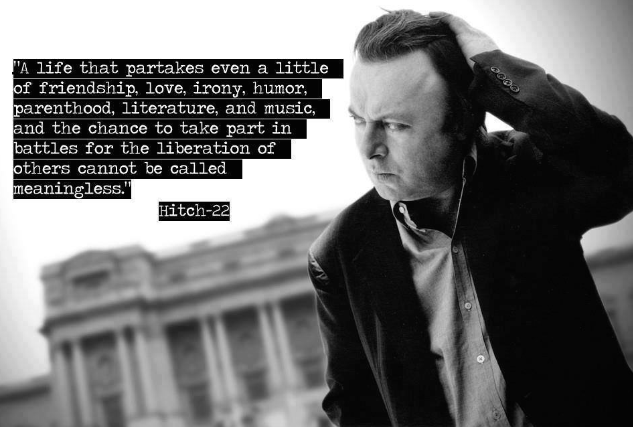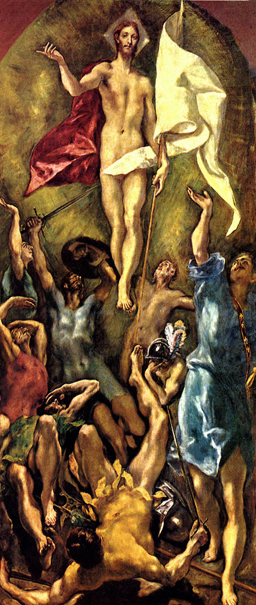
I’ll say this for him, he looks like a nice fellow and a snappy dresser!
Thursday morning I happened to catch Q, the foremost arts and culture radio program of my country. I listened in, even in the midst of a busy day, because I wanted to hear what one guest had to say (click here to listen to the segment). Ryan Bell, is a former 7th Day Adventist* pastor who has decided to “try on” atheism for one year. I was intrigued and more than a little skeptical about his experiment. I had heard about him a couple weeks ago but wanted to hear the man himself. It goes without saying that I had some thoughts:
1) It is good to try and figure out what other people think like. Bell claims that he really wanted to understand his atheist friends. I can track with that. We should always be willing to learn where other people are coming from. Unlike Bell, who perhaps was raised within the fold of a faith community – I don’t know, I have actually been an atheist. I still and will always need to remember what that was like. We always need to seek true understanding of others. Today I do it in order to first truly love and respect another. And secondly to better discern how I can persuade them of the Christian Gospel. Because, yeah, I’m not embarrassed of it and I really do want others to believe in Jesus. Bell rightly points out how atheists are capable of experiencing love. Of course they are! They are also able to experience the Good, the True, and the Beautiful that God has woven into His world. And we should respect people where they’re at. But that is a far cry from presuming we can actually become something other than we are. Respectful discourse and learning of another is best accomplished when we know where we stand. To abandon, or at least act like you’ve abandoned, your core beliefs and worldview in the name of appreciating others seems disingenuous to me. I think there’s another story playing out here…
2) I’ll let my most skeptical side air out for a moment. Bell, I think , is attempting to come across as an authentic searcher and wondering/wandering pilgrim on life’s highway of sublime mysteries. But you guessed it, he’s got a blog! He’s doing the media circuit internationally. Canadian radio! Australian TV! And it might be just my imagination but I can smell the aroma of a book deal on the breeze. The Year of This, Year of That, Year of _____ is a minor cash cow in the faith-based publishing world. The loss of faith, and the loss of faith amongst clergy, is not new. What is new, however, is the ability to cash in on it like never before. What is also new, is those who wrestle with questions in such a way as to move further away from answers. And that they get to portray themselves as more ‘authentic’ than those who keep their feet on the Terra Firma of historical, orthodox, Biblical Christian faith. Everyone wrestles with the big questions. Everyone has doubts. Working through them is part of normal Christian maturing. Want to see real authenticity? Look at someone who has kept the faith through the darkest season of their lives and become a saint because of it. What is apparent with Bell is that his year of atheism is deeply personal. To his credit, Bell admits that it is. But that’s just it, isn’t it? A very personal crisis of faith, which is at once emotional, philosophical, intellectual, and woven into a personal history full of hurts, disappointments and so on isn’t just a thought experiment. But Bell casts it as one. And to be let go from a faith-based institution for not holding to the core beliefs is a bit like a doctor having to look for a new career after refusing to prescribe medications. It is no injustice!

Christianity is not like a pair of pants. And even if it was, it certainly wouldn’t have cargo pockets!
3) Finally, I don’t think it will work. Trying on atheism for a year is not just a thought experiment. Bell knows this instinctively, I think. He’s not going to go to Church, or pray, or do other Christian activities. But as an experiment I don’t think it will work. Here’s why: our beliefs are not just in the realm of intellect. Faith, and especially Christian faith, is embodied. Christian faith is embodied in a Christian life. Gathering for worship, hearing the proclaimed Word, praying alone, praying with others, praying in tongues, reading the Bible and other spiritual books, repenting of sins, renewing your confession, serving others… even what you put in your mouth! Christianity is a set of ideas that form a worldview but it’s not merely that. Christianity is not something that you can take of like a pair of pants in order to test out another. And other world views aren’t either. That’s why some atheists are wondering about the legitimacy of Bell’s year-long experiment. What we set the pattern of our lives to become – we become. That’s how worship works. And that’s why Bell’s experiment won’t. It won’t make him, as a person of faith, be able to sympathize/empathize with atheists. It may make him one though.
I’ll give the obligatory “he seems like an intelligent and decent guy” statement about Ryan Bell. I don’t know the quality or reality of Bell’s faith prior to this. And I can’t say for certain what his belief system will be like after 2014. I certainly sympathize with anyone who goes through a crisis of faith. I definitely grieve the thought of anyone turning their back on Christ (the rejecting of Whom I still am not ashamed to believe bears eternal consequences). No one knows another’s path and every life is in God’s hands. But being someone who was really once an atheist, I wish I could tell him how refreshing and wonderful it was to leave that worldview for another.
* Is 7th Day Adventism truly representative of Christianity? Let’s leave that aside for today.
 We can all get what the late Christopher Hitchens is complaining about here. The claim that without God, life has no meaning. There was certainly a lot in his life that must have given him meaning. There’s a lot in all our lives, regardless of what we believe, that gives meaning. We ought to be careful not to denigrate what others find makes their lives worth living.
We can all get what the late Christopher Hitchens is complaining about here. The claim that without God, life has no meaning. There was certainly a lot in his life that must have given him meaning. There’s a lot in all our lives, regardless of what we believe, that gives meaning. We ought to be careful not to denigrate what others find makes their lives worth living.



